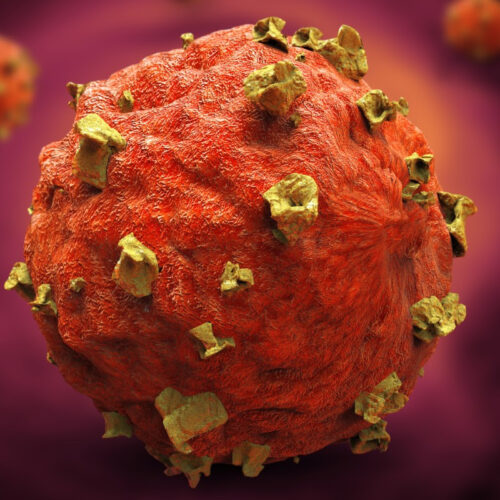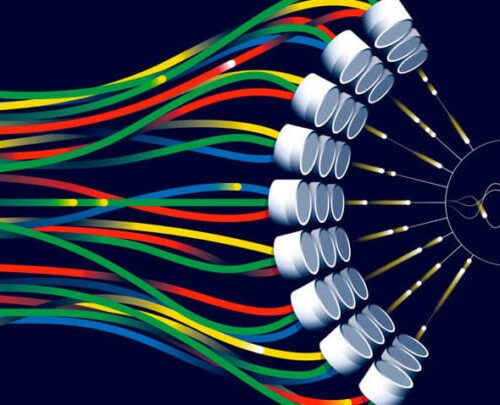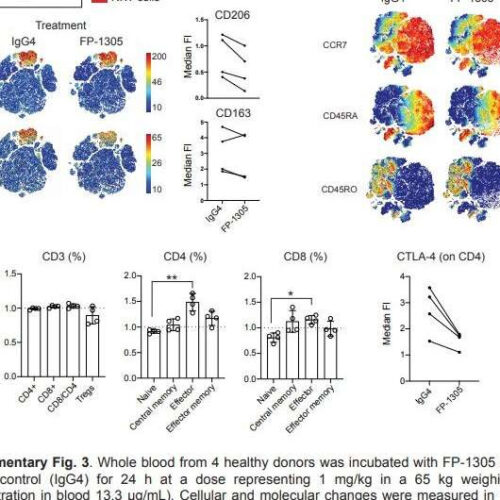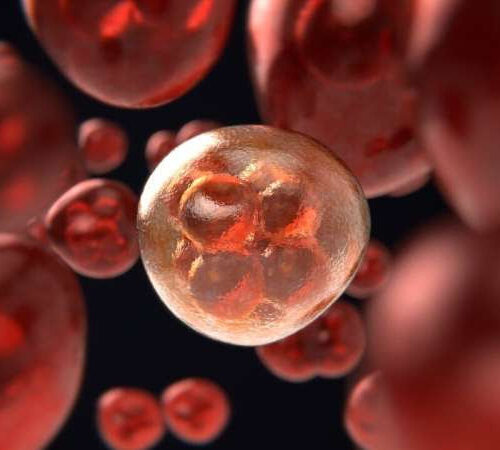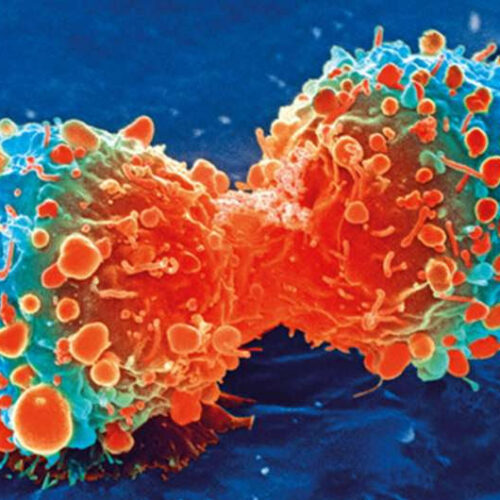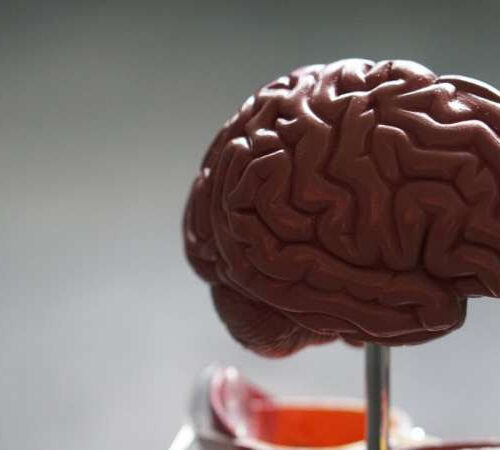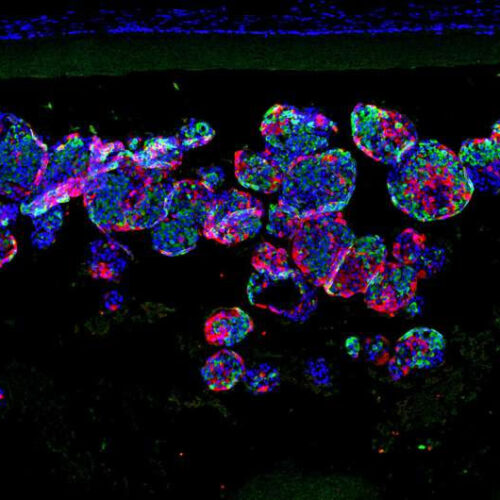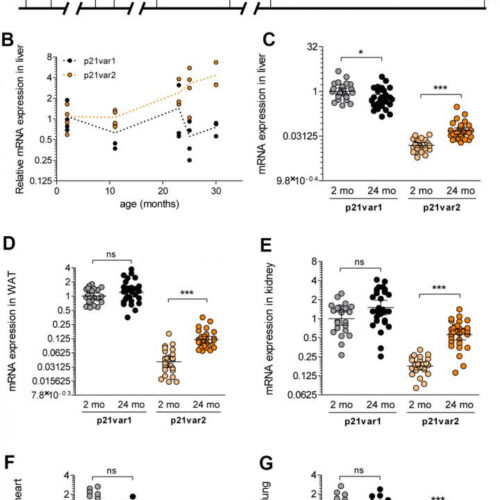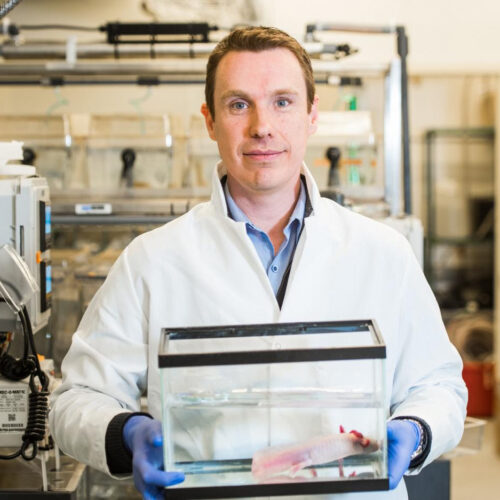By Nick Lavars June 02, 2021 An artist’s impression of a cancer cellGiovanni_Cancemi/Depositphotos Leveraging a newfound ability to identify the “fittest” metastatic cancer cells, scientists at the UK’s University of Salford have discovered that an already approved drug can be deployed to cut off their fuel supply, while leaving normal healthy cells unharmed. Metastatic cancer...
Ultrasound Technology Developed at U-M now in Clinical Trials for Liver Cancer
The University of Michigan is one of eight sites around the country that will enroll patients in a clinical trial to evaluate the safety and efficacy of a technology that uses ultrasound to treat liver tumors. The #HOPE4LIVER trial will employ the noninvasive technique to mechanically destroy primary and metastatic liver tumors. Illustration of histotripsy technology. Image...
Novel antibody drug wakes up the body’s defense system in advanced-stage cancer
by University of Turku Credit: Clinical Cancer Research (2021). DOI: 10.1158/1078-0432.CCR-20-4862 Researchers at the University of Turku, Finland, showed that the antibody treatment reactivates the immune defense in patients with advanced-stage cancer. The treatment alters the function of the body’s phagocytes and facilitates extensive activation of the immune system. The immune defense is the body’s own defense system equipped to...
Analysis of 4,000 drugs reveals an alternative mechanism for a new anticancer therapy
by Tabea Kemna, Karolinska Institutet Credit: Pixabay/CC0 Public Domain By analyzing 4,000 drugs’ ability to affect cells’ capacity to produce proteins, researchers at Karolinska Institutet found that an anticancer therapy currently trialed in human patients works differently than previously thought. As many human diseases have alterations in this process called translation, the new knowledge contributes to a better...
Insight into early stages of bowel cancer could provide new treatments
by University of Glasgow Cancer cell during cell division. Credit: National Institutes of Health An international team of scientists have identified key factors underpinning the development of bowel or colorectal cancer in patients with a genetic predisposition to the disease. The study—led by researchers at the Cancer Research UK Beatson Institute at the University of Glasgow and the University of...
Neuroscience doesn’t undermine free will after all
by Dartmouth College Credit: Unsplash/CC0 Public Domain For decades, researchers have debated whether the buildup of certain electrical activities in the brain indicates that human beings are unable to act out of free will. Experiments spanning the 1960s and 1980s measured brain signals noninvasively and led many neuroscientists to believe that our brains make decisions before we do—that human actions...
AI outperforms humans in creating cancer treatments, but do doctors trust it?
by University Health Network Credit: CC0 Public Domain The impact of deploying Artificial Intelligence (AI) for radiation cancer therapy in a real-world clinical setting has been tested by Princess Margaret researchers in a unique study involving physicians and their patients. A team of researchers directly compared physician evaluations of radiation treatments generated by an AI machine learning (ML) algorithm to conventional radiation...
Tiny implant cures diabetes in mice without triggering immune response
by Washington University School of Medicine Researchers at Washington University School of Medicine in St. Louis and Cornell University have collaborated to implant insulin-secreting beta cells grown from human stem cells into mice with diabetes, to normalize their blood sugar. The cells pictured (in purple) are inside a tiny implant that is porous enough to allow these...
Aging: Cdkn1a transcript variant 2 is a marker of aging and cellular senescence
IMPACT JOURNALS LLC IMAGE: The Cdkn1a variant 2 transcript is preferentially induced during aging. (A) We designed primers (black arrows) to specifically detect Cdkn1a variant 1 and 2 transcripts, spanning the first and second exons in each case. The protein-coding region is indicated as well as the ATG start codon (brown arrow). Transcription starts at...
MDI Biological Laboratory scientist identifies signaling underlying regeneration
MOUNT DESERT ISLAND BIOLOGICAL LABORATORY IMAGE: A team of scientists led by James Godwin, Ph.D., of the MDI Biological Laboratory in Bar Harbor, Maine, has come a step closer to unraveling the mystery of why salamanders can regenerate while adult mammals cannot with the discovery of differences in molecular signaling that promote regeneration in the...

